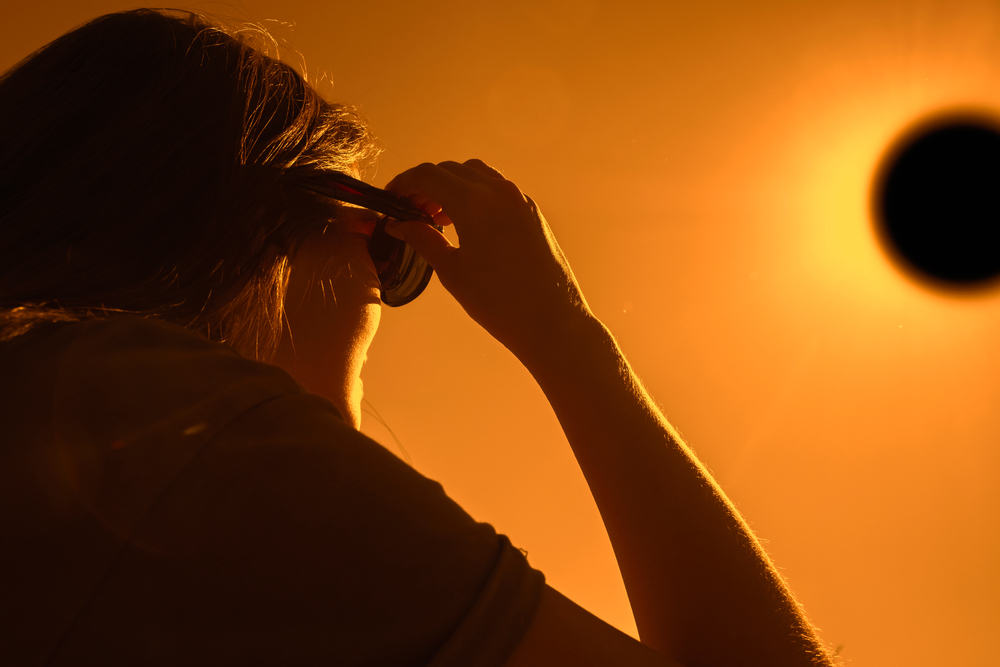
On April 8, a total solar eclipse will occur! A solar eclipse happens when the moon passes between the sun and the earth, blocking the sun's light completely. This phenomenon is a breathtaking spectacle that has fascinated humans for centuries. However, it is crucial to take the necessary precautions to protect your eyes when observing this natural wonder.
Understanding the Risks to Eye Health During a Solar Eclipse
Staring at the sun during an eclipse, even for a short period, can result in damage to your eyes. The intense light emitted during an eclipse can cause solar retinopathy, a condition characterized by damage to the retina, the light-sensitive tissue at the back of the eye. Symptoms of solar retinopathy include blurred vision, central scotoma, and even partial or complete vision loss.
Additionally, it is essential to note that the harmful UV and IR rays emitted during a solar eclipse can also lead to other eye conditions such as cataracts and macular degeneration. These conditions can significantly impair your vision and may require medical intervention. Therefore, it is crucial to prioritize your eye health and take the necessary precautions when viewing a solar eclipse.
Choosing the Right Eyewear for Viewing a Solar Eclipse
When it comes to viewing a solar eclipse, selecting the appropriate eyewear is of utmost importance. Regular sunglasses or homemade filters are not sufficient to protect your eyes from the harmful rays emitted during an eclipse. Instead, you should invest in certified solar eclipse glasses or handheld solar viewers. These specialized glasses are designed to filter out the harmful ultraviolet (UV) and infrared (IR) rays, allowing you to safely observe the eclipse with minimal risk to your eyes.
Tips for Viewing the Solar Eclipse Safely
To ensure a safe and enjoyable viewing experience during a solar eclipse, here are some important tips to keep in mind:
- Use certified solar eclipse glasses: Always use certified solar eclipse glasses or handheld solar viewers to protect your eyes. These glasses should meet the international safety standards (ISO 12312-2) and have the ISO logo printed on them.
- Inspect your eyewear: Before using your solar eclipse glasses, carefully inspect them for any scratches, damages, or defects. If you notice any issues, do not use them and find a replacement.
- Follow the usage guidelines: Read and follow the instructions provided with your solar eclipse glasses. Ensure that you wear them properly and do not remove them while observing the eclipse.
- Avoid using cameras or binoculars: Looking through a camera or binoculars without proper solar filters can intensify the sun's rays and cause severe damage to your eyes. Unless you have the appropriate filters, it is best to avoid using these devices during a solar eclipse.
- Keep children under supervision: Children should be closely supervised during a solar eclipse to ensure they are using the proper eyewear and following safety guidelines. Educate them about the risks and explain the importance of protecting their eyes.
Precautions to Take When Viewing a Solar Eclipse
In addition to wearing certified solar eclipse glasses, there are other precautions you should take to safeguard your eyes during a solar eclipse:
- Choose a safe viewing location: Find a safe spot away from bright lights and tall buildings that may obstruct your view. Ideally, select an open area with a clear view of the sky.
- Do not use regular sunglasses: Regular sunglasses, no matter how dark, are not designed to protect your eyes from the harmful rays of a solar eclipse. Do not rely on them as a substitute for certified solar eclipse glasses.
- Do not look directly at the sun: Even with proper eyewear, it is essential to remember not to look directly at the sun during a solar eclipse. Brief glances are acceptable, but prolonged exposure can still cause damage to your eyes.
- Monitor your symptoms: If you experience any discomfort, vision changes, or unusual symptoms after viewing a solar eclipse, seek immediate medical attention. Prompt diagnosis and treatment may prevent further damage to your eyes.
Enjoying the View without Compromising Your Eye Health
A solar eclipse is a mesmerizing natural phenomenon that should be experienced with caution. Protecting your eyes should be a top priority when observing this celestial event. By choosing the right eyewear, understanding the risks to eye health, and following the recommended safety tips, you can safely enjoy the wonders of a solar eclipse without compromising your vision.
For further guidance on how to safeguard your eyes while enjoying the beauty of a solar eclipse, visit Lotus Eyecare at our office in Frisco, Texas. Please call (972) 334-9095 to schedule an appointment today.








